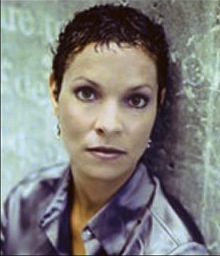Election Coverage Falls Short on “Women’s Issues”

The mainstream media misses the complexity of women’s lives in representing what’s important to women voters. The author (left) calls for a far more nuanced public conversation.
If a well-meaning gender studies student – (or even, perhaps, a befuddled presidential candidate) – were to Google “women’s issues,” they would be met with a hodgepodge of hits, and no doubt find it difficult to summarize what concerns women most.
In the same way, journalism professionals have made the mistake of allowing the presidential campaigns to define, in their own hodgepodge way, what they think impacts women’s lives.
The media talks about abortion because the loss of choice is clearly at stake in this election. And we talk about job losses for women because Mitt Romney wants us to. We are only now beginning to talk about equal pay (Romney, less successfully) because a real woman voter raised the question and because a woman moderator included it in the last debate.
But these limited, hot-ticket subjects can’t possibly cover the full range of conversations that we should be having about women’s lives. What’s missing from the current debates is a deeper, more layered and nuanced discussion about all of the myriad ways in which government can help, or hurt, women every day.
So what do women voters care about most? Everything that men and couples and families care about, of course. And more. And all at once. Not in segregated words and phrases.
You can’t possibly talk intelligently about the right to contraception and abortion, for example, without also talking about the public health threat of domestic violence, which profoundly influences reproductive freedom. And you can’t talk about sexual and domestic violence without also understanding how they are fed by poverty, the drug and prison economies, generational misogyny, and low self-esteem.
How do the candidates expect to address abortion exceptions for rape, for instance, without also confronting the cultural shaming that stops massive numbers of women from reporting sexual violence in the first place?
As a former contributing writer for ESSENCE magazine, and author of Black Women’s Lives, I’ve spent years reporting about women whose everyday challenges can’t be summarized neatly into boxes like “pro-life” or “equal pay” – although both of these issues certainly matter.
Most women of color are concerned not just with “choice” but with reproductive rights as a whole; a broader concept that includes affordable access (not just Romney’s vague “access”) to contraception, as well as a right to a living wage, and affordable child care. After all, these are the basic factors that enable pregnant women in the workforce to feel that they really do have a “choice.”
Women of color know that reproductive rights are even connected, in a complex web of necessity and desire, to immigration reforms and access to a college degree. They are part of the same interconnected conversation.
And I, for one, would like to hear more of this intelligent nuanced discussion in the mainstream media’s coverage of “women’s issues.”
During this election, and beyond.
Click on the video to hear more from Kristal Zook. Video by: Clodagh McGowan, Columbia Journalism School
More articles by Category: Media, Politics, Race/Ethnicity
More articles by Tag:



























